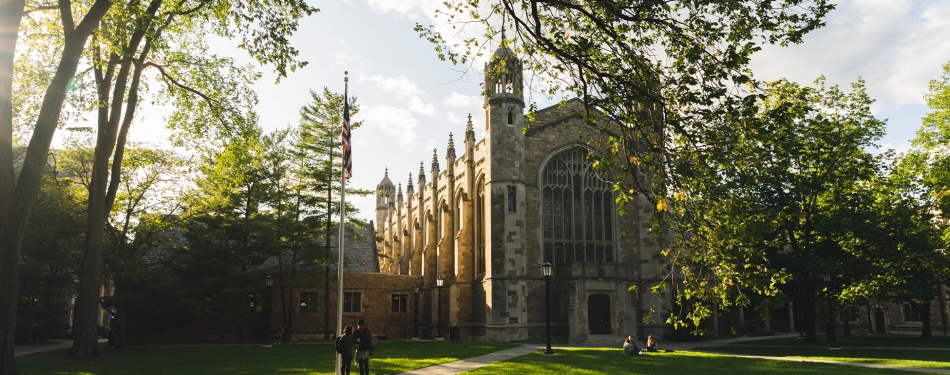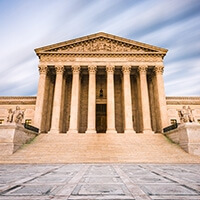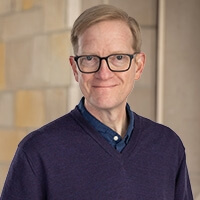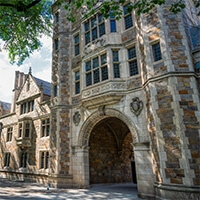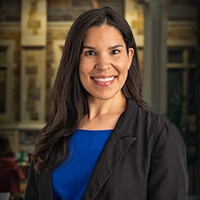Hundreds of Michigan Law students participated in the electoral process earlier this month, volunteering as poll workers and challengers and in other partisan and nonpartisan efforts during the midterms—an election that produced the highest voter turnout for a midterm in Michigan history.
The Michigan Voting Project (MVP), a nonpartisan student-run organization, served as a hub for many election-related volunteering opportunities at Michigan Law. The group is active every year, but is especially present during presidential and midterm elections. Starting in September, MVP staffed a weekly table in Hutchins Hall to help students register to vote and to provide encouragement and opportunities to get more involved. The group also organized election-related training sessions in partnership with the Ann Arbor City Clerk’s office, as well as a series of lunch events with members of the faculty and others about voting rights and related topics.
Providing vital voter resources
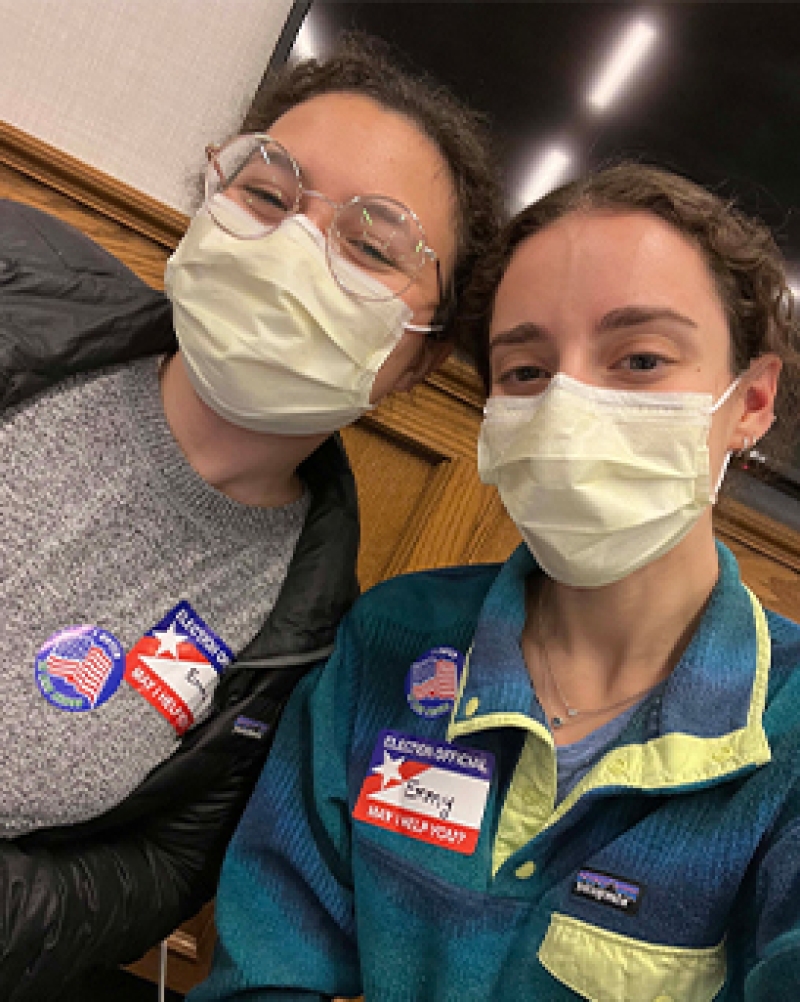
One of MVP’s largest initiatives was a hotline that connected volunteers with voters who had questions about the election. The hotline was operated in partnership with Promote the Vote, a nonpartisan group that was behind two successful ballot initiatives related to voting rights in Michigan’s 2018 and 2022 elections. (The president of Promote the Vote, Khalilah Spencer, ’01, was recently profiled in the Law Quadrangle.)
Once students were trained on how to use the hotline platform, they had flexibility to sign up for shifts that worked around their busy schedules.
The most common voter questions concerned basic voting information, such as how to register, where to find their polling location, and other logistical details. The hotline also fielded calls related to more serious issues at the polls, such as illegal electioneering, eligible voters being denied their right to vote, or other inappropriate behavior from citizens or local election officials.
“One great thing about the hotline is that the volunteers were able to escalate really pressing matters, or issues that may be the basis for future litigation, to more experienced volunteers or people who work for Promote the Vote,” said Louisa Lennon, a 2L who serves as MVP co-president alongside 2L Emmy Maluf. “So if there is a need to follow up and get more information, or speak to the person who is witnessing the issue, that can happen very quickly. It was exciting to be a part of that.”
MVP also partnered with the nonprofit Vote Forward, an organization that runs letter-writing campaigns to increase voter turnout in underrepresented communities. Beginning in summer 2022, Michigan Law students ultimately wrote 705 letters to Michigan voters that provided nonpartisan election information, such as their polling location, and encouraged them to get out and vote.
A busy day at the polls
Nearly 100 law students volunteered on Election Day (many of whom were encouraged by the Law School not holding classes that day), including 41 students who served as poll workers in Ann Arbor. An additional 26 students traveled to Detroit to volunteer as nonpartisan election challengers at the Huntington Place convention center—which was the site of controversy, misinformation, and near-violence during the 2020 election (it was known as the TCF Center at the time).
“It was really courageous of those students to sign up and do that, and we were blown away by how many people were willing to give up their free day, especially the many 1Ls who signed up despite the stress of exams coming up,” Maluf said. “The Michigan Law volunteers made up the vast majority of the nonpartisan challengers at the site, so they were the backbone of that operation, which is really great.”
Maluf, who served as a poll worker at the Michigan Union on Election Day, was inspired to see the level of engagement on campus. “Seeing the youth turnout was really amazing. Most of the voters at the Union were undergraduate students, and a lot of them ended up not being registered, so we directed them to the University of Michigan Museum of Art (UMMA) across the street, where the City Clerk had set up a satellite office,” Maluf said. “One student came in at 7:53 p.m., and we told him he wasn’t registered and that the polls closed in seven minutes. He literally ran out the door to get to UMMA.”
Keeping everyone in line
The ability to register day-of and cast a ballot at UMMA led to lengthy lines on Election Day, and by the time the polls closed, hundreds of people were in line at the museum as the temperature flirted with the 30s.
Across the street in the Lawyers Club, law students saw the long line, and more than a dozen rushed over to provide food and water to people waiting, as well as blankets and attire to keep people warm while they waited in line. Ewurama Appiagyei-Dankah, a 2L whose plan to serve as a partisan election challenger was scuttled by logistical issues, jumped at the opportunity to get involved.
“Making sure that every single person who is eligible to vote has the opportunity to do so matters a lot to me, so I brought blankets, hats, and scarves to encourage people to stay in line. I got most of them back, although one hat and a scarf were sacrificed for democracy. But it was worth it,” said Appiagyei-Dankah, who also expressed enthusiasm for Michigan’s recent electoral reforms.
“It’s incredible to see the impact of the independent redistricting commission, and it’s great that Michigan has expanded opportunities for people to vote and that we’re continuing on the path of expanding access to the franchise. It’s great for democracy,” she said.
Texting for turnout, with a focus on the judiciary
When Malcolm Phelan arrived at the Law School, he was advised to bury himself in books and absorb as much as he could in his doctrinal courses. But Phelan, a 1L who spent five years managing political campaigns before matriculating at the Law School, couldn’t resist the pull of election season. So he spearheaded a flexible volunteering initiative for himself and other students.
Working on behalf of a political committee set up to communicate with voters about nonpartisan candidates on their ballot, Justice for All–Michigan, Phelan organized a texting campaign that shared information on judicial races, especially at the local level.
“In some races there’s very little information about each judge’s values or what organizations have endorsed them, and so we sent voters information about specific judicial races, including the district and circuit courts,” Phelan said.
Their outreach was based on information provided by the Michigan Association for Justice, a nonprofit organization that administered an extensive questionnaire of statewide judges and endorsed those with a demonstrated commitment to a fair and effective justice system.
More than 30 Michigan Law students participated in the campaign, which reached more than one million Michigan voters in three weeks. Once students were trained on the texting platform, they were able to send texts according to their own schedules, sometimes even between classes. Unlike most texts from political campaigns, these were not one-way exchanges—voters could respond and ask questions, and many did.
“Tens of thousands of people responded and had a text conversation with our volunteers. Many voters expressed how delighted they were to get the information and know that someone on the other end was genuinely interested in engaging and sharing helpful resources,” Phelan said. “One of the nice things about texting is it’s an easy way to get involved and feel like you’re making a difference. And it’s also kind of fun.”

